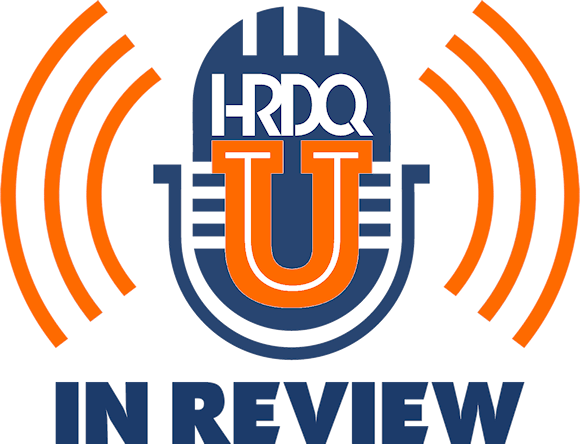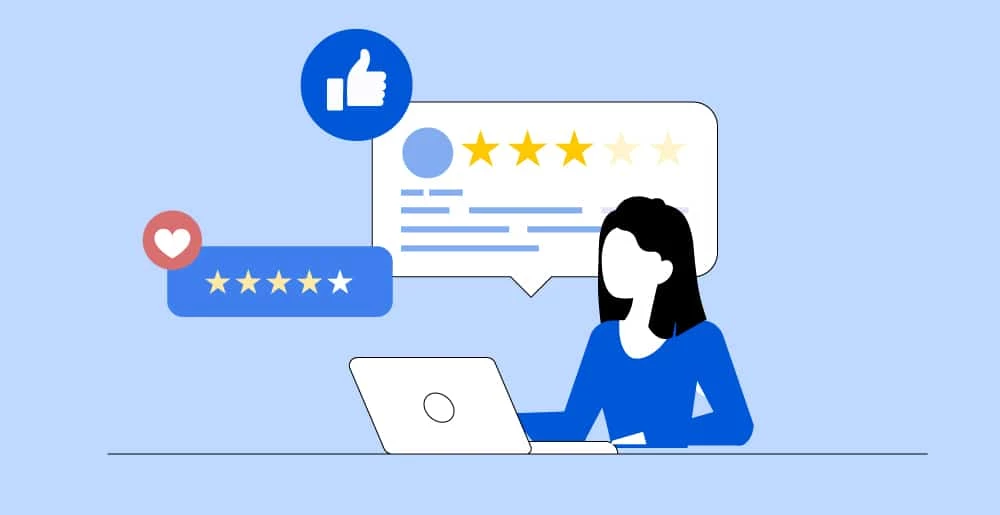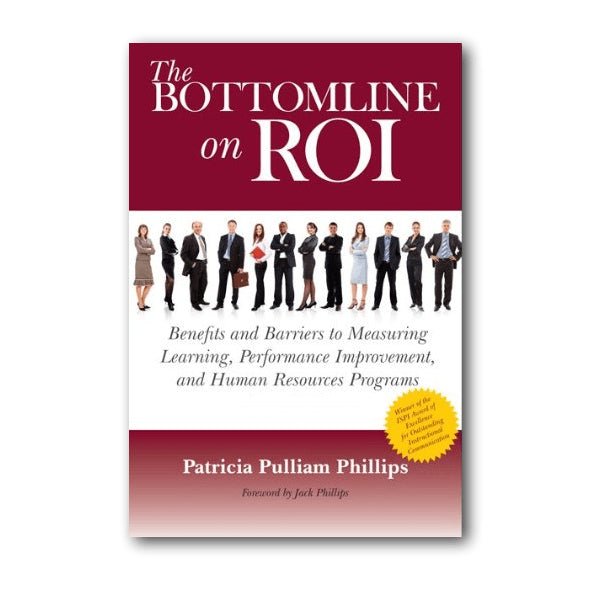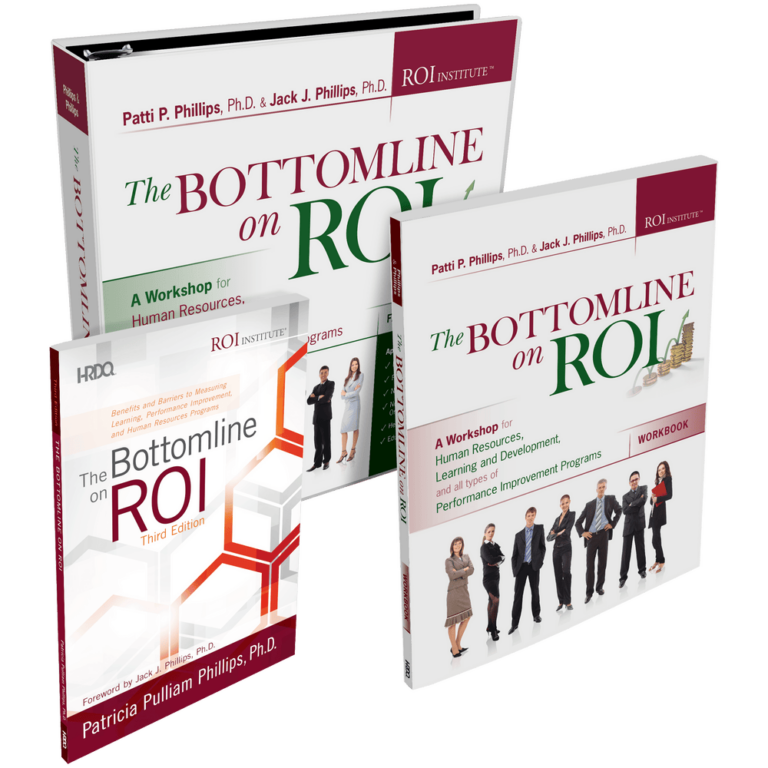Log In
View Upcoming Events


We’re back with Dr. Jack Phillips for a follow-up to our recent webinar, Proving the Value of AI: How to Ensure That AI Delivers. In this episode, Jack dives deeper into the insights from the event, sharing what stood out most to him and providing valuable takeaways. He explores the biggest mistakes companies often make when adopting AI, offering practical advice on how to avoid these pitfalls. Jack also addresses why so many organizations are still struggling to measure ROI with AI and how they can tackle this challenge more effectively.
In addition to these critical points, we delve into major shifts happening in the Learning & Development (L&D) space, particularly in relation to AI integration. Jack sheds light on some of the most common misconceptions about AI and breaks down the truth behind them. We also discuss the latest trends that all business leaders, tech enthusiasts, and innovators should be keeping a close eye on as AI continues to evolve.
Lastly, Jack gives us an exciting glimpse into what’s next for him and where you can stay up-to-date with his latest work. Whether you’re already immersed in AI or just starting to explore its potential, this episode is packed with valuable insights on ROI with AI you won’t want to miss.
Tune in for another enlightening conversation that will help you stay ahead of the curve in the world of AI!
00:01
Welcome to this week’s episode of the HRDQ-U In Review Podcast, where we bring you the latest insights and practical tools for enhancing soft skills training in your organization. This podcast is brought to you by HRDQU.com, and I am your host, Sarah, Learning Events Manager at HRDQ-U. Today, I have Dr. Jack Phillips joining me to discuss the webinar, Proving the Value of AI: How to Ensure that AI Delivers. Jack, thanks so much for joining me today. My pleasure, Sarah.
00:31
Well, welcome back. You’ve been on the podcast a few times before. You have presented many webinars here with us at HRDQ-U. You’re a partner over at HRDQ Store as well. Could you talk a little bit about, you know, what have you been up to since we last spoke? Well, we keep growing the business and moving into new areas. A lot of focus on what you just talked about, soft scales. We particularly like to work with the hard to value and hard to measure stuff like culture, art.
01:01
change management, transformation, you know, those kind of things. So we see a lot of interest in that because a lot of people want to know if it’s working well.
01:12
Great. And so with L&D, you know, the L&D space is changing at a rapid pace currently with, you know, the addition of AI. What major shifts have you seen in the L&D space? Yes, I think we can all see some things occurring that really touches what we do. DNI is probably a big one. It’s just being defunded, de-emphasized, discontinued in so many places. And it’s a shame because
01:42
We know DEI delivers when you measure it, but so many people just didn’t step up to that. They had so much good support for it. Funding was there. They said, we don’t need this kind of accountability. And I kept saying, but someday you may. Now’s the time to do it. And we see it now. Those who have funding for it, for the most part, are able to keep it going.
02:11
We could show you some examples of that, but that’s one area. Second, I think, is what’s happening with remote work. People are coming back to work, shifting from hybrid to full work, or from full remote to hybrid. That’s affected learning because people, basically, if they’re working at home, do all of their learning virtually in some way so they didn’t have to travel.
02:41
But now, since they’re going to work, they’re more okay with in-person learning. And the reason is that still in the virtual learning format, we are not delivering the kind of value that we should. It’s just not working that well. People are burned out on virtual programs for the most part, particularly a program that’s lasting several days. And so,
03:09
We keep looking at ways not just to keep them engaged and active, which is very important, but making sure that it delivers on the post format. So we see a little uptick in person. That’s the summary of this, I think. And a lot of focus on showing the value of the virtual still.
03:32
And this week you presented the webinar, Proving the Value of AI, How to Ensure that AI Delivers. And we had a really engaged audience with us. What was something that stood out to you most from this event? Well, as we expected, we saw confirmation that people are not seeing much ROI come through. No studies, no measurement necessarily. But they also were appreciative of the fact that there’s a process here and a system here to do it, and you can do it.
04:03
Also, I think some were surprised that they have to drive it. The vendors, the suppliers, the people who offer subscriptions and so forth, they’re just not providing an ROI study to show this is how it helps you. That’s typical when people roll out all kinds of new things. There’s a reluctance to even show you the value because there’s a fear that it may not be a positive ROI. So a good engaged audience confirming for me,
04:32
what we typically see, opening their eyes a little bit at the same time. And Jack, what’s something about measuring AI’s ROI that more organizations should be talking about but aren’t? And it’s really, think, the ROI perspective. For one, if you’re investing a lot in this, you really need to see the ROI.
05:00
and you could do it yourself, but first go to your provider, your vendor, your supplier, and say, what do you have? Can you help? Can you show the ROI? We’re going to have to drive this as consumers of AI. we see there’s a bubble that some people are predicting is going to burst on the investment. Investors are already saying, you know, we’re not seeing much out of this. This is from an investor perspective.
05:28
We just thrown so much money into this. And we’re afraid, they’re afraid that it’s not going to deliver. Now, AI, it’s got so many great things about it and it’s needed. It’s this constant evolution of innovation that we’ve been witnesses for centuries. We need it. It’s just at a rapid pace and we just got to bring accountability.
05:57
Pro or against, are we concerned about it? Are we are wild with it? We’ve got to push the accountability. It helps both sides. The critics, it helps them support it maybe. And for those who are just enamored with it, it validates that this is going to deliver the value that we have.
06:21
What about a misconception? What’s a misconception about AI in business that you find yourself correcting? generative AI is what really brought people’s attention because they started with the CHAT GPT in November 2022.
06:44
So when it would write memos for me and do reports for me, people were just wild with it. And they know that maybe there’s some incorrect information or maybe it’s inaccurate, maybe not complete. But just using it without questioning it. We can see when someone sent us a document that’s been created by Generative AI, our own staff, can see that.
07:13
And what that makes us do is look at it a little closer now for the accuracies. Just this morning, I’m speaking to a group in Saudi Arabia about leadership development. So I went to my favorite chat GPT plus. so I said, tell me about leadership development in Saudi Arabia. And it gave me what’s going on. What are the issues? What kind of programs being developed? Now I can’t trust it.
07:44
I’ve got to look at other sources and I’ve got to go to my partners there. I’ve to make sure that this is the right thing. And I think the misconception is not questioning it. It’s still not where it needs to be. I know we’re supposed to teach it, but some people don’t know how to teach it. They don’t know that it’s incorrect or has some misinformation there.
08:15
And kind of in the same lane here, what’s a common mistake that companies make when it comes to AI adoption in their organization? I’d say not thinking about the accountability. You know, people do it because it’s going to save me time. Well, if it saves you time, but if you’ve got to spend time correcting it, you know, we’ve seen people say, I’m spending more time making this a better document than probably I could have myself.
08:43
It’s so good when there’s a blank page, you know nothing about a topic. It does give you something to fill up that page and several pages. But then you got to work it from there. So I think we are failing to realize that you can’t get just instantaneously a finished product that’s going to be okay for my client or my customer or my boss. We got to really work on it. And I remember the recruiters talking about
09:13
problem they have is with AI writing most people’s resumes now, they all look alike and says, we seem to like resumes that don’t use AI. We’re going to kind of give them a preference in the selection process. That’s not good because it’s supposed to help us not get be a barrier to us.
09:37
And what AI trends should we be keeping an eye on? Well, I think the providers are going to have to step up to this. Let me show you more specifically how this is going to help you. And let me show you how it’s happening. Let me do the analysis for you. Just take Jim and I from Google.
10:04
If I own Google, I’d have a major study of how people are using Gemini now, what value it brought to them, what are we learning from this? And so putting that data out, you know, what works and doesn’t work for this. And they’ve been reluctant to do that because they’re afraid it might not be delivered by you and they’re trying to keep selling it. So I think you’re going to see a shift in accountability from the providers being forced on, mostly by the users.
10:35
And Jack, what’s next for the ROI Institute? Well, we’re actually using a digital coach to support our process. So we’re developing that now with a provider. And that’s someone who’s doing an ROI study. It’s like a coach is out there with them, helping them plan it, helping them design, helping them collect, helping them work through this.
11:04
So we’re gonna see how that works for us. So we’ll go into this with the same accountability scrutiny. Does it really add value? We’re gonna sell it to our clients. We’ll provide it free for a year, but then sell it. But it’s gotta be a good ROI for our clients. So we’re gonna put the ROI framework all around this. So we’re going down that path just like everyone else is, but we’ve got probably a little keen eye on the accountability.
11:34
more so than most. great. And Jack, lastly, where can listeners follow your latest work? You can go to our website. That’s the ROIinstitute.net. You can reach out to me at LinkedIn and then just contact me for discussion if you’d like. I’d be happy to discuss any of these issues with anyone. That’s jack at ROIinstitute.net.
12:04
So we’re all about showing the value of what you do and that’s the title of one of our books. And maybe we could just give that book to someone who wants it from us and reach out to us and maybe we can talk. Thank you. Well, thank you, Jack, for your time today. Thank you, as always.
12:25
And we hope you enjoy listening to the HRDQ-U In Review podcast available on all major streaming platforms. If you did enjoy today’s episode, make sure you do give us a follow and leave us a five-star review. That’s how we’re able to continue to produce this weekly free content to you. And thank you all for tuning in to this week’s episode of the HRDQ-U In Review podcast brought to you by HRDQU.com.


Listen to this podcast event at no charge with your
HRDQ-U Free Access Membership
We’re back with Dr. Jack Phillips for a follow-up to our recent webinar, Proving the Value of AI: How to Ensure That AI Delivers. In this episode, Jack dives deeper into the insights from the event, sharing what stood out most to him and providing valuable takeaways. He explores the biggest mistakes companies often make when adopting AI, offering practical advice on how to avoid these pitfalls. Jack also addresses why so many organizations are still struggling to measure ROI with AI and how they can tackle this challenge more effectively.
In addition to these critical points, we delve into major shifts happening in the Learning & Development (L&D) space, particularly in relation to AI integration. Jack sheds light on some of the most common misconceptions about AI and breaks down the truth behind them. We also discuss the latest trends that all business leaders, tech enthusiasts, and innovators should be keeping a close eye on as AI continues to evolve.
Lastly, Jack gives us an exciting glimpse into what’s next for him and where you can stay up-to-date with his latest work. Whether you’re already immersed in AI or just starting to explore its potential, this episode is packed with valuable insights on ROI with AI you won’t want to miss.
Tune in for another enlightening conversation that will help you stay ahead of the curve in the world of AI!
[ PODCAST PLAYBACK ]
You must be signed-in with your membership account to access this content.
Enjoyed this podcast? Have suggestions on how we can improve? Please take our quick survey and receive a coupon for 15% OFF any of our individual membership plans.

*Instant 15% coupon available upon completion of survey.
Want to learn more? Become an Individual or Corporate member to watch this and hundreds more webinars!
Discover the ROI of AI and how it can revolutionize your business. Explore the benefits and possibilities of implementing artificial intelligence.

Jack J. Phillips
Jack J. Phillips, Ph.D., Chairman of ROI Institute, is a world-renowned accountability, measurement, and evaluation expert. Phillips provides consulting services for Fortune 500 companies and major global organizations. The author or editor of over 100 books, he conducts workshops and presents at conferences worldwide.
Jack has served as training and development manager at two Fortune 500 firms, senior human resource officer at two firms, president of a regional bank, and management professor at a major state university.
This background led Jack to develop the ROI Methodology, a revolutionary process that provides bottom-line figures and accountability for all types of learning, performance improvement, human resource, technology, and public policy programs.
Jack has consulted with various organizations on employee engagement projects, including The Conference Board, and has taught thousands of individuals how to show the value of engagement.
Jack has received several awards for his books and work. The Society for Human Resource Management presented him with an award for one of his books and honored an ROI study with its highest award for creativity. In November 2019, Jack and his wife, Patti Phillips, were named two of the top 50 coaches in the world by the Thinkers 50 organization. In addition, they were named finalists for the Marshall Goldsmith Distinguished Achievement Award for Coaching.
Connect with Jack on Facebook, X, and at www.roiinstitute.net.

Training Tools for Developing Great People Skills
This event is sponsored by HRDQ. For 45 years HRDQ has provided research-based, off-the-shelf soft-skills training resources for classroom, virtual, and online training. From assessments and workshops to experiential hands-on games, HRDQ helps organizations improve performance, increase job satisfaction, and more.

The Bottomline on ROI 2nd Ed. Paperback Book
Uncover key insights to effectively link learning and development with the success of the organization. Leaders will gain the skills needed to align their programs with measurable results and develop strategies to communicate these outcomes.
Buy at HRDQstore.com
The Bottomline on ROI
This workshop enhances the connection between HR and learning initiatives, transforming them into quantifiable results. It offers essential principles, real-life case studies, and practical exercises that equip trainers to assess and convey the outcomes of soft skills and leadership training effectively.
Buy at HRDQstore.comThe HRDQ-U In Review Podcast, brought to you by HRDQU.com, brings you the latest insights and practical tools for enhancing soft-skills training in your organization. As a learning community for trainers, coaches, consultants, managers, and anyone passionate about performance improvement, we interview subject matter experts and thought leaders from recent webinars they presented with us to take a deeper dive into the content they shared and answer all your questions. Join us as we explore new ideas and industry trends, share success stories, and discuss challenges faced by professionals.
The HRDQ-U In Review Podcast is intended for HR and training professionals, organizational development practitioners, and anyone interested in improving workplace performance and productivity.
New episodes of HRDQ-U In Review are released every week.
The length of the episodes varies, but they typically range from 15-30 minutes.
The podcast covers a wide range of topics related to HR and organizational development, including leadership development, team building, communication skills, conflict resolution, employee engagement, and more.
No, HRDQ-U In Review is completely free to listen to.
You can listen to any available HRDQ-U In Review Podcast right on our website at HRDQU.com via our embedded Spotify player on the related webinar page. In addition to our self-hosted option, you can find the HRDQ-U In Review Podcast on many of the popular streaming services, which are listed above.